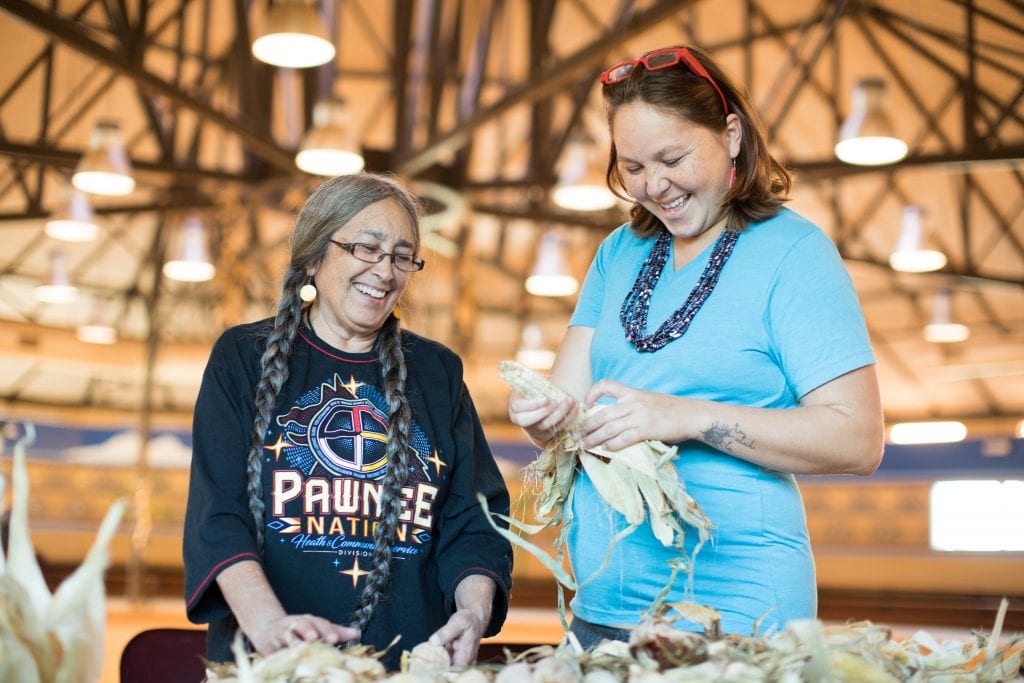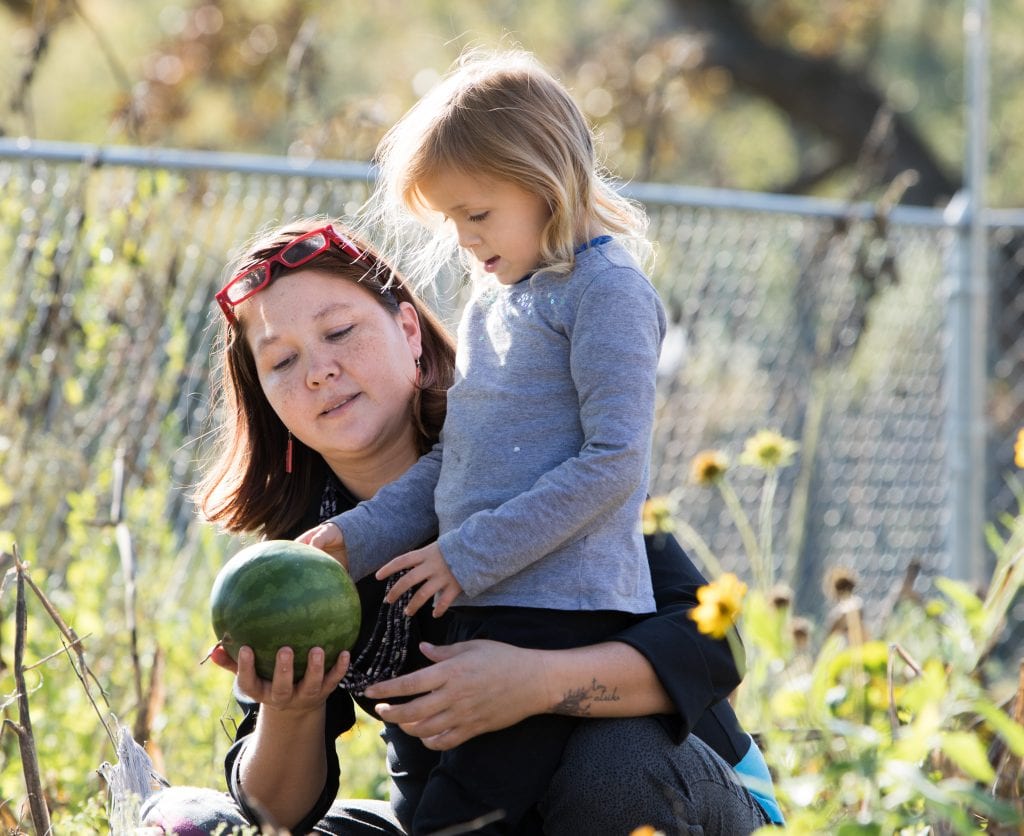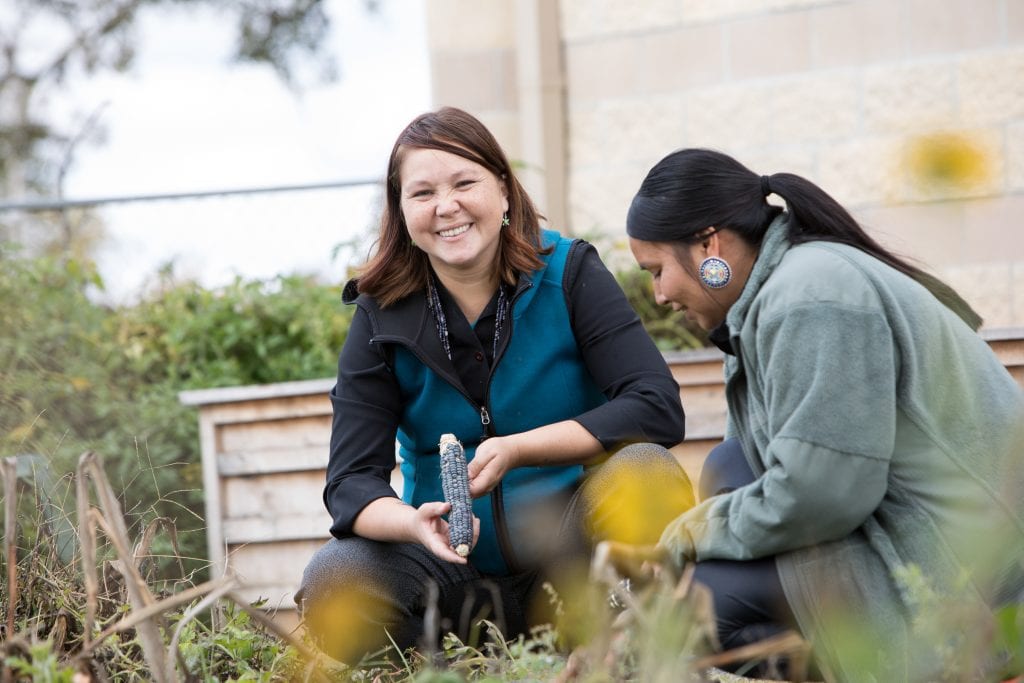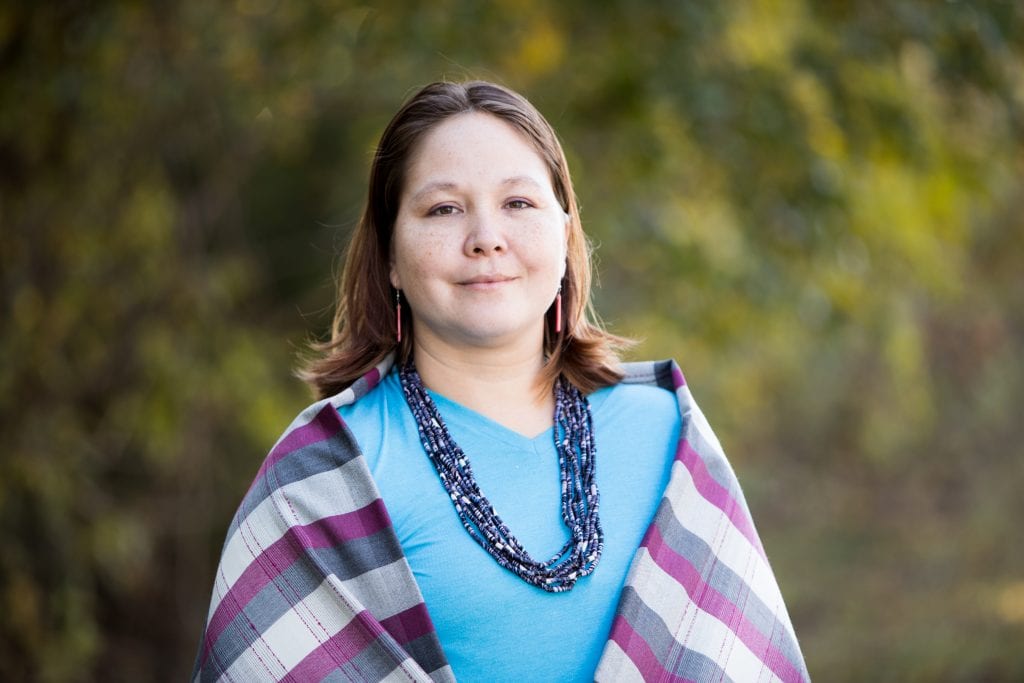For tribal nations, being able to create and shape policy is key to sustaining food systems, ensuring well-being, and reducing chronic disease.
When you consider health and well-being, do you think about the food systems that sustain your community? Do you think about agricultural policy? Do you think about your community’s history and traditions? Do you think about the next generation of farmers?
For Electa Leigh Hare-Redcorn, these threads are inextricably interwoven.
A member of the Pawnee Nation of Oklahoma, Electa earned her master of social work degree from Washington University in St. Louis after discovering her passion for working with youth at a YMCA summer camp. Two years later, she was invited to start working with the Pawnee Seed Preservation Project, recruiting youth interns to learn traditional farming methods in the Pawnee homeland, in what is now Nebraska.
“We help people understand the importance of maintaining homeland ties, reconnecting with our culture, and preserving our traditional seed and ancestral knowledge. Our crops were medicine. They were more than just a food staple,” Electa said. “Regenerating the land and reaffirming our lifeways go hand in hand with practicing reciprocity. They all begin with our relationships.”

Debra Echo-Hawk (Director, Pawnee Seed Preservation Project) and Electa inspect traditional blue corn grown in Nebraska.
Now a Health Policy Research Scholar and PhD student in community development at the University of Arkansas, Electa is exploring relationships among health, policy, and food systems. Historically, federal policy has contributed to declines in the health of indigenous people. The goal of Electa’s research is to strengthen the capacity of tribal nations to create and shape policies that sustain their food systems and reduce chronic disease and obesity.
 Electa and her daughter Signy admire a watermelon.
Electa and her daughter Signy admire a watermelon.
Being part of Health Policy Research Scholars has broadened and deepened Electa’s perspective as a researcher. “It has stretched me and helped me further realize the value of diversity and being able to connect with other scholars doing important work,” she said. “It has also helped me further realize the value of believing in yourself and your research.”
Connecting with fellow scholars has also helped Electa see that we are all linked to the same food systems and water sources. “We’re going to have to find a way to work together,” she said.
At the University of Arkansas, Electa works with the Indigenous Food and Agriculture Initiative, where she develops nutrition and health education curricula, helps organize an annual youth summit, and educates young people interested in farming. There, she is already using tools and approaches she has learned in Health Policy Research Scholars.
 Electa has helped Mee-Kai Clark study traditional Pawnee farming.
Electa has helped Mee-Kai Clark study traditional Pawnee farming.
“When I’m asked to organize a youth panel on agriculture, I’m trying to get them to think about policy,” she said. “What would they like to see change for the better policy-wise and how would they make a pitch if they only had a couple minutes?”
“It’s youth development in a holistic sense, including their connection to the land and their understanding of the laws and policies that impact them.”

This shawl reminds Electa of the strength and resilience of the Pawnee.
Top photo: Electa, her daughter Lottice Redcorn, and her mother Dawna Hare walk together on the land where Electa’s grandfather and great-grandfather were raised. All photos by Josh Kohanek.

